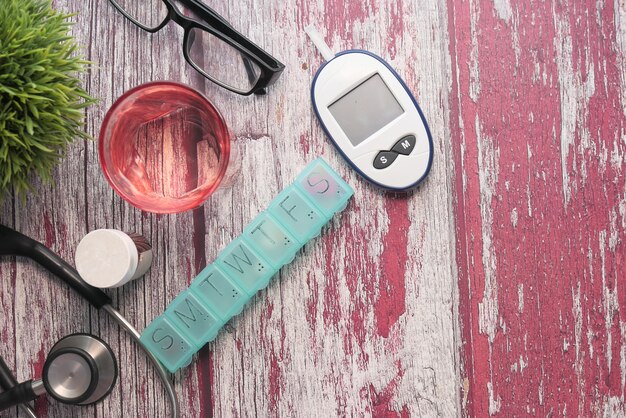Your Guide to Can Diabetic Retinopathy Be Reversed
What You Get:
Free Guide
Free, helpful information about Diabetes FAQ and related Can Diabetic Retinopathy Be Reversed topics.
Helpful Information
Get clear and easy-to-understand details about Can Diabetic Retinopathy Be Reversed topics and resources.
Personalized Offers
Answer a few optional questions to receive offers or information related to Diabetes FAQ. The survey is optional and not required to access your free guide.
Can Diabetic Retinopathy Be Reversed? Discovering Hope and Solutions
Diabetic retinopathy, a common complication of diabetes, poses a significant threat to vision. It’s a condition where high blood sugar levels damage the blood vessels in the retina, leading to vision impairment or even blindness. One pressing question for nearly all those affected is: Can diabetic retinopathy be reversed?
The Reality of Reversal
While complete reversal of diabetic retinopathy isn't currently possible, early detection and treatment can halt its progression and occasionally improve vision. Various treatments can indeed manage and stabilize the condition, sometimes even improving vision to a certain extent, especially in the early stages. Here's how:
- Control Blood Sugar, Blood Pressure, and Cholesterol: By keeping these vital health markers within recommended ranges, you can significantly slow the onset and progression of retinopathy.
- Laser Therapy: Known as photocoagulation, this treatment can reduce the risk of vision loss, especially if administered early.
- Anti-VEGF Injections: These medications, injected directly into the eye, can help reduce swelling and slow vision loss.
- Vitrectomy: In advanced cases, this surgical approach may help restore some vision by removing scar tissue and blood from the eye.
Financial Support: Managing the Costs of Treatment
Diabetic retinopathy treatments, while effective, can be costly, potentially burdening patients with financial strain. Fortunately, there are diverse resources and aids available:
Government Health Programs: Medicare and Medicaid in the U.S. often cover treatments for diabetic retinopathy, including laser therapy and injections. Always check your eligibility and what each program can specifically offer.
Non-Profit Organizations: Groups like the Lions Club International or Prevent Blindness America sometimes provide assistance or support for eye care.
Patient Assistance Programs (PAPs): Pharmaceutical companies may offer PAPs to help cover drug costs for those who qualify.
Broader Financial Assistance Options
Dealing with diabetic retinopathy involves long-term commitment, not just medically but financially, too. Exploring these financial tools can relieve burden and open new avenues for care:
Debt Relief and Credit Management Services: Companies specialize in helping individuals restructure their debts and manage payments effectively, reducing the monthly burden and improving credit scores.
Educational Grants and Scholarships: Your health condition might render you eligible for specific educational programs or grants, especially if retraining for a different occupation becomes necessary due to vision loss.
Local Community Services: Many community organizations offer financial aid, nutrition programs, and support for managing medical expenses. Tap into local networks for personalized assistance.
Navigating the world of diabetic retinopathy can be daunting, but with the right tools, support systems, and financial aids, you can tackle both the health and economic challenges more efficiently.
Quick Resource Guide:
🏥 Health Programs:
- Medicare & Medicaid for treatment coverage
- Non-profits like Lions Club International for eye care support
💵 Financial Management:
- Debt relief services for credit restructuring
- Credit counseling for better financial health
🎓 Educational Opportunities:
- Grants and scholarships for retraining or continued education
🤝 Community Support:
- Local aid services for various types of assistance
By leveraging these resources, managing diabetic retinopathy becomes less about coping and more about thriving. Stay informed, explore available aid, and stride forward with greater confidence and stability.
What You Get:
Free Diabetes FAQ Guide
Free, helpful information about Can Diabetic Retinopathy Be Reversed and related resources.

Helpful Information
Get clear, easy-to-understand details about Can Diabetic Retinopathy Be Reversed topics.

Optional Personalized Offers
Answer a few optional questions to see offers or information related to Diabetes FAQ. Participation is not required to get your free guide.


